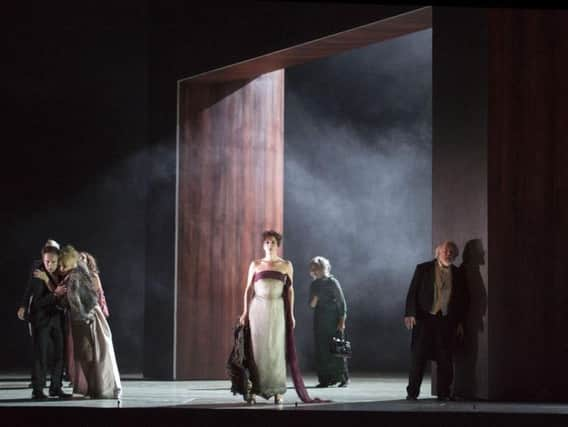Classical Chat: Curtain's up at the opera house


Jokes about things not being over until the fat lady sings or about going into the opera house to see a Wagner work at 5pm, sitting in the dark for two hours and then looking at your watch to see it’s 10 past five indicate many people find the whole idea a trial.
And that is a crying shame.
Yes, a certain amount of suspension of disbelief is evidently required when a story is being acted out and the characters keep bursting into song.
Advertisement
Hide AdAdvertisement
Hide AdYes, some operas can be extremely long and demanding, some of them are overbearingly dark and tragic and a fair few of them, particularly those written in early 19th-century Italy, were penned at incredibly high speed and do not therefore always make the greatest amount of logical sense.
But persevere with opera (or just stick to some of the artform’s unquestioned masterpieces and park the rest on the side) and there are glories aplenty to be found.
Since the earliest operas were written in the early 1600s, encouraged by an interest in what ancient Greek drama might have been like, a huge range of works have been penned.
There are delightful comedies overflowing with sparkling music, thrilling dramas which keep audiences on the edge of their seats, epic adventures transporting people into other worlds and dark, penetrating trips deep into psychology and human nature.
Advertisement
Hide AdAdvertisement
Hide AdHere are just a few examples of the riches awaiting once the curtain rises:
Mozart – The Marriage of Figaro: This utter gem sets the story of how Count Almaviva’s servants thwart his attempts to seduce the maid Susanna who is getting married to his valet. Set to unflaggingly beautiful music, the opera charts a path from broad comedy to the countess’ heartbreaking aria to a moving reconciliation.
Puccini – Tosca: The tale of the heroine of the title, the artist Cavaradossi and the evil Scarpia has captivated audiences with its massive drama, dramatic ending and hauting clarinet-led E lucevan le stelle, its best-known song.
Verdi – Otello: Another Italian masterpiece, this superb rendition of Shakespeare’s tragedy of the general whose mind is poisoned by villain Iago carries the audience through jealousy, rage and hate to a dramatic conclusion.
Advertisement
Hide AdAdvertisement
Hide AdBerg – Wozzeck: A very different work to the melodic Italian operas, this is the composer’s response to World War One and tells of a simple soldier brutalised by the military. It’s a dissonant, dark work but it packs a massive punch, especially the final scenes.
Britten – Peter Grimes: Unveiled in 1945 Britten’s first great work brings small-town England to the stage with the story of a fisherman outcast by his community. The well-known Sea Interludes capture its unsettling, elemental feel.